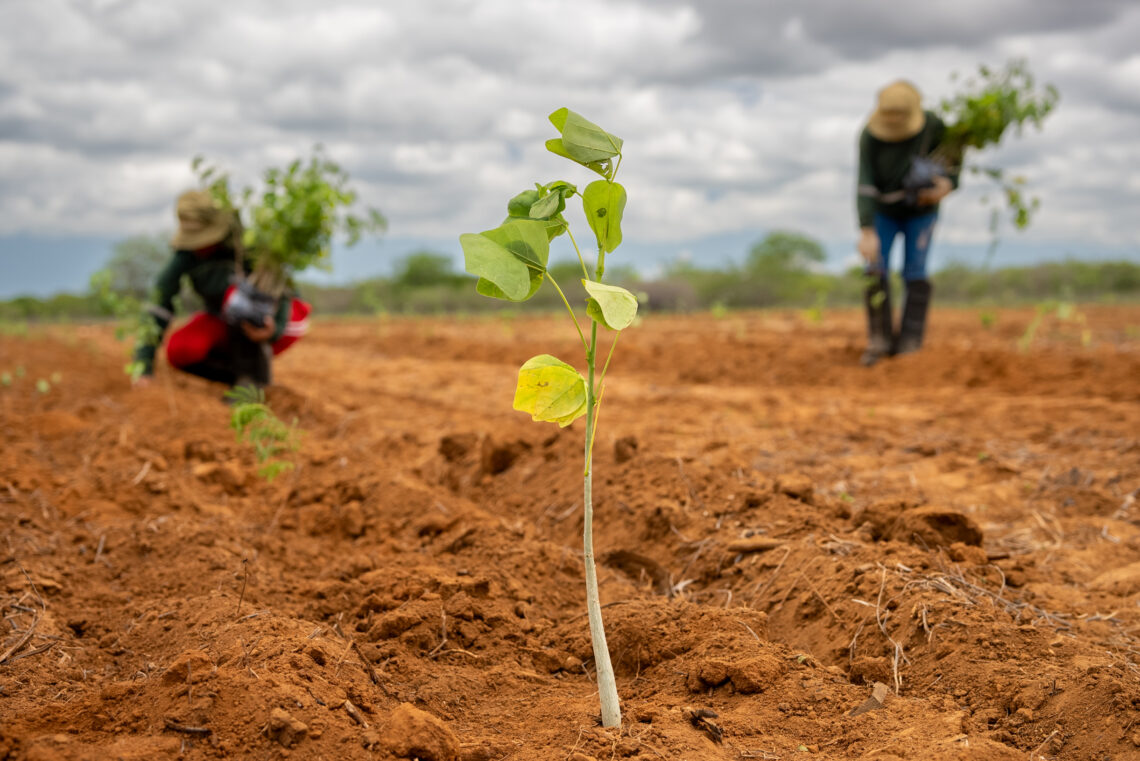Sustainability
How we work with sustainability

Clean and sustainable energy
Scatec develops, builds, owns, operates, and maintains power plants that generate clean electricity. Electricity is essential for the economic growth of nations and human welfare. The goal is to increase access to clean, affordable, and renewable electricity generation in emerging markets. Sustainability is a strategic priority for Scatec.
Governance and risk management approach
Sustainability is a fundamental aspect of the organisation and is incorporated into all business units. Each country’s sustainability team consists of corporate support teams and specialists who report to the global headquarters and ultimately to the Executive Vice President (EVP) People, Sustainability & Digitalisation, who is part of the Executive Management team (Management) reporting directly to the Board of Directors (Board).
The Audit and Sustainability Committee conducts quarterly reviews of Scatec’s sustainability reporting, while the Board regularly reviews material topics. This includes reviewing and advising on the Company’s sustainability strategy, evaluating and monitoring annual sustainability targets and results, and discussing strategic direction and other key decisions.
Sustainability topics, including health, safety and security, anti-corruption, responsible procurement, environmental and social impacts, and stakeholder engagement, are reviewed by the Management and the Board biweekly and monthly. For all projects, environmental and social risks are identified, reported, and actively managed with clear decision gates and requirements throughout all project phases. A detailed corporate ESG risk matrix is developed to ensure that relevant risks and their respective status are raised to the Management and the Board.
Scatec’s sustainability team collaborates closely with regional teams and business units to review and address relevant sustainability issues quarterly. The sustainability policy commitments are integrated into the organisational strategies, operational policies, and procedures through continuous collaboration with all business units on shared projects and initiatives.
Compliance
Scatec adheres to the Equator Principles and IFC’s Environmental and Social Performance Standards for consistent project practices. We follow OECD Guidelines for Multinational Enterprises and collaborate with partners like IFC, Norfund, KLP, and major development banks, all of which maintain high standards for projects and their impacts.
Reporting and assurance
Scatec reports in accordance with the Corporate Sustainability Reporting Directive (CSRD) and European Sustainability Reporting Standards (ESRS). We regard our report to be our Communication on Progress (COP) to the United Nations Global Compact (UNGC). Furthermore, this report builds upon our submissions to the Carbon Disclosure Project (CDP) and aligns with the principles of the Task Force on Climate-related Financial Disclosures (TCFD).
Scatec’s ESG data and sustainability reporting align with our annual financial audits. PwC, our financial auditor, reviewed our ESRS disclosure requirements in accordance with ISAE 3000. They conducted a full verification of all material sustainability matters with limited assurance.
2024: Key ESG performance
Sustainability impacts, risks and opportunities

Renewables must respect nature, include social considerations, and involve society. Minimising impacts on biodiversity and local communities is crucial, and local value creation including economic development aid in the support for renewable energy deployment.
Climate change
Scatec’s strategy focuses on transitioning from fossil fuels to reduce greenhouse gas emissions. Moving towards a decarbonised society is a key opportunity, as global electricity consumption is expected to rise between 2020 and 2050. Our renewable energy projects help lower emissions from fossil fuel-based electricity. Embracing climate-related opportunities driven by regulatory changes and growing renewable energy demand is central to our strategy. However, we acknowledge potential physical risks from extreme weather and transitional risks from increased regulation and market shifts. Intensifying climate ambitions may also lead to increased competition impacting prices. To address these challenges, our Net Zero Roadmap outlines five initiatives aimed at achieving net-zero emissions by 2040.
Biodiversity
Utility-scale renewable energy projects can impact the environment by degrading habitats, reducing resources, and transforming ecosystems, which affects biodiversity. Scatec aims to implement measures to minimise these impacts and restore biodiversity, ensuring sustainable management and conservation for future generations.
Circularity
Renewable energy projects necessitate significant resource investments for their construction. Given that power purchase agreements (PPAs) can extend up to 30 years, these projects must be meticulously designed and managed to ensure sustained performance and proper decommissioning. Additionally, it is imperative to responsibly decommission these projects at the end of their lifecycle to mitigate or minimise waste and its environmental impact.
Own workforce
Scatec thrives on a skilled, driven, and diverse team. Our mission is to provide affordable, clean energy globally through an ambitious vision of a better future. We value creativity, innovation, and global collaboration. Scatec’s HSSE vision is built on teamwork to achieve zero harm.
Workers in the value chain
We aim to maintain a responsible supply chain and focus on our value chain as part of our sustainability efforts. We monitor and report on key ESG risks and performance, and select suppliers with strong sustainability practices. We respect and protect all internationally recognised human rights, strive for zero harm to contractors’ personnel, materials, and the environment, and prepare for emergencies to minimise impacts.
Affected communities
Throughout our operations, we place significant emphasis on the human rights that may be affected and on protecting vulnerable groups. We maintain continuous communication with local communities regarding our projects and their potential impacts. Additionally, we implement long-term development programmes and contribute to local job creation and skills transfer.
Business conduct
The renewables industry is driven by those who envision a better future. However, many countries we work in face corruption challenges. We rigorously prevent unethical practices, maintain zero tolerance for bribery and corruption, and uphold high business ethics standards.
Safety and security
Health, safety, security, and environment (HSSE) are key priorities. We set requirements, monitor performance, and communicate standards in all project phases. The metrics represent corporate figures for rolling 12 months, updated on a quarterly basis.